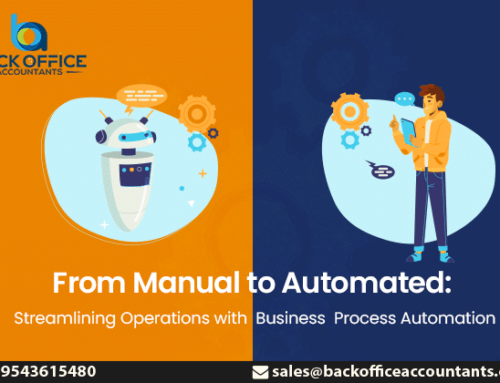Effective management of finances is essential for the prosperity of any enterprise, and carrying out frequent reconciliation is a critical aspect of ensuring precise documentation. It is especially imperative for a seamless process of submitting tax returns. The significance of regularly reconciling accounts is highlighted in this article, emphasizing its role in facilitating a hassle-free tax season. The benefits of this practice are also explained, which include precise financial reporting, error reduction, and decreased anxiety related to filing taxes.
Accurate Financial Reporting:
Accurate financial records in restaurant accounting greatly rely on the importance of conducting reconciliation regularly. This process entails the examination and correlation of monetary dealings, such as revenue, costs, and fund movements, with relevant documentation and reports.
Restaurant proprietors can ensure precision in their financial reporting by promptly detecting any inconsistencies, inaccuracies, or potentially fraudulent behaviour through regular account reconciliations. Precise financial record-keeping holds immense significance, especially during tax season when the IRS pays close attention to it. A meticulous process of reconciling mitigates the possibility of mistakes or inconsistencies that might lead to audits or sanctions.
Minimizing Errors and Discrepancies:
Regularly reviewing financial records through reconciliation is an efficient method for detecting mistakes and inconsistencies. Through a comparison of various types of data like bank statements, receipts, and invoices, businesses can rapidly detect any disparities. Utilizing this technique, back-office accountants can detect inaccuracies like faulty information inputs, repeated transactions, or non-existent vouchers that could potentially affect tax computations to a great extent.
Being able to detect and correct mistakes at an early stage is of utmost importance as it prevents problems from escalating and minimizes the possibility of inaccuracies in tax returns. During the hectic tax season, valuable time and energy can be conserved by avoiding the need to investigate and rectify mistakes.
Smooth Tax Season Filing:
The importance of reconciling regularly cannot be overstated when it comes to facilitating a hassle-free tax season for eateries. When restaurant owners keep precise financial records throughout the year, they can effortlessly obtain the essential details necessary for tax planning. Reconciled accounts offer accountants or accounting firms a comprehensive understanding of earnings, outflows, and reductions, facilitating the preparation of precise tax returns.
Efficiently managing financial data beforehand alleviates the burden of scrambling at the last minute during tax season, thereby saving precious time and minimizing stress. When tax season filing goes smoothly, restaurant owners can dedicate their attention to efficiently managing their business operations, free from any interruptions or distractions.
Role of Backoffice Accountants:
The back office accountants hold great importance in maintaining restaurant accounting and conducting timely reconciliations. These experts excel in overseeing the monetary facets of a dining establishment, which comprises record-keeping, salary transactions, and tax arrangements. Accountants in the back office are responsible for ensuring that all financial transactions are promptly and precisely documented and balanced.
They analyze financial information, recognize patterns, and offer valuable suggestions aimed at enhancing the economic efficiency of the restaurant. Collaborating closely with restaurant proprietors, back-end accountants guarantee that all financial documents are organized, establishing a stable groundwork for the reporting of taxes during the season.
Benefits of Accounting Firms:
A great solution for several restaurants is to team up with accounting firms that specialize in back-office services. Professional back-office accounting firms offer specialized knowledge and effective techniques when reconciling financial records, guaranteeing their precision and timeliness.
They possess a profound comprehension of accounting methods applied in restaurants and could offer valuable counselling regarding enhancing the efficiency of accounts receivable operations. Professional accounting firms keep themselves well-informed about tax laws and regulations to ensure adherence and optimizing deductions. By delegating accounting responsibilities to trustworthy third-party companies, restaurant owners can dedicate their attention to essential tasks and receive skilful financial administration.
To summarize, consistent reconciliation is an essential procedure for enterprises to guarantee a seamless tax season submission and streamlined management of accounts receivable practices. Businesses can minimize mistakes and inconsistencies, follow tax laws and evade penalties and audits by keeping precise financial records via frequent reconciliation.
Furthermore, the act of reconciliation furnishes enterprises with a comprehensive understanding of their monetary well-being, thereby enabling them to make informed choices. Regular reconciliation of accounts receivable is key to enhancing cash flow management and fostering better customer relationships. Incorporating frequent reconciliation not only simplifies the process of filing taxes during the designated season but also reinforces the general efficiency and prosperity of financial management.
Backoffice accountants can help you optimize your financial operations. They guarantee precision, adherence to regulations, and ease of mind for your enterprise, covering a range of tasks from managing accounts to preparing taxes.







